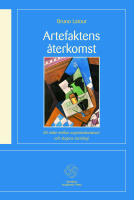
Traces on the Rhodian Shore: Nature and Culture in Western Thought From Ancient Time to the End of the Eighteenth Century
Häftad bok. University of California Press. 1976. xxviii, 763 sidor.
Mycket gott skick.
Glackens monumentala arbete om naturbegreppets utveckling. Fortfarande ett ohotat standardverk. Mycket fint exemplar utan namnteckning, understrykningar eller dyl.
In the history of Western thought, men have persistently asked three questions concerning the habitable earth and their relationships to it. Is the earth, which is obviously a fit environment for man and other organic life, a purposefully made creation? Have its climates, its relief, the configuration of its continents influenced the moral and social nature of individuals, and have they had an influence in molding the character and nature of human culture? In his long tenure of the earth, in what manner has man changed it from its hypothetical pristine condition? From the time of the Greeks to our own, answers to these questions have been and are being given so frequently and so continually that we may restate them in the form of general ideas: the idea of a designed earth; the idea of environmental influence; and the idea of man as a geographic agent. These ideas have come from the general thought and experience of men, but the first owes much to mythology, theology, and philosophy; the second, to pharmaceutical lore, medicine, and weather observation; the third, to the plans, activities, and skills of everyday life such as cultivation, carpentry, and weaving. The first two ideas were expressed frequently in antiquity, the third less so, although it was implicit in many discussions which recognized the obvious fact that men through their arts, sciences, and techniques had changed the physical environment about them. This magnum opus of Clarence Glacken explores all of these questions from Ancient Times to the End of the Eighteenth Century.








![1913 : The Year before the Storm [Elektronisk resurs]](https://dez1v4fbcawql.cloudfront.net/product/1853589/8894550/5d9c4208c4385.jpg)
!["Wild Girl, Natural Man, and the Monster: Dangerous Experiments in the Age of Enlightenment" [Elektronisk resurs]](https://dez1v4fbcawql.cloudfront.net/product/129151/13189329/65f4add12191d.jpg)
